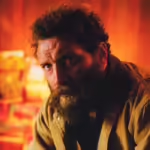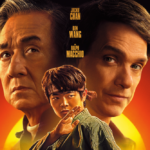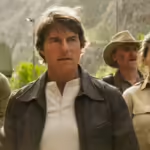Sarah Blasko returns with her fourth studio album “I Awake”. Much of the album was written by Blasko as she relcated to Brighton n the UK. Like its’ predecessor, As Day Follows Night, Blasko recorded the album in Stockholm. This time however, Blasko produced the album herself. A brave, emotionally directly record “I Awake” saw Blasko fly to Bulgaria to record with a 52 piece orchestra. If was a helluva journey for a woman that started the new work by strumming ideas on a ukele. Masterful, “I Awake” is lush, raw and a welcome addition to the Blasko canon. Sean Sennett asks the questions.
Sean: I was going to ask you; was there one particular song that allowed you to “get into” this record? Was there a tipping-point song that revealed the record and the direction you were going to take?
Sarah: I clearly remember that “Bury This” was the first one really. When I hear that now and play it, it’s like I can feel that moment and I can picture where I was very clearly. That’s really where I had the idea that I wanted to make an album that was really about contrast. If you play it like a ukulele voice song it’s a very fragile song that’s very simple. And that’s when I thought to myself I’d love to have this simplicity with the contrast of the big force of an orchestra. That’s really where, and I think just the sort of mood of that song, the darkness or something in it was what I felt I wanted the album to sound like.
Sean: I guess it’s a pretty brave thing you making an album like this because I was going to ask you that whole thing about trust the teller, not the tale. You put a lot of yourself into the songs, don’t you?
Sarah: I do, I guess—in some ways in a sort of very unconscious way, and then when you stop to think about it you kind of realise. I guess as a human being I find it very difficult to not be honest in my life, or to hold things back. That’s probably my biggest struggle in my life in some ways. In some ways, I guess I don’t think about it. It just sort of pours out of me in a way, for better or worse.
Sean: I was curious about your song-writing process. I know you’ve mentioned you had a ukulele [to start writing with] on this record and piano on the last one. Is it a case of tinkering and finding a germ of an idea and working with that germ, or is it a different kind of process?
Sarah: No, I think it is definitely a tinkering thing. You just try to work out the direction, try to do what you didn’t do last time or the time before that. It takes a bit of time to experiment and work out what that is. For me, I think it’s quite refreshing to start writing on an instrument you’ve never written on before. That often brings up something new.
Sean: Does a song tend to hang around with you for a year before you finish it, or can it be an afternoon? Is there any kind of theorem?
Sarah: It’s different for each thing. Sometimes I’ll literally force myself to try and finish it within a day or so. It often takes quite a while to get the lyrics right. Actually on this one, the first time actually on a couple songs I had completely different lyrics, totally different title, changed it completely. I’ve never done that before
it’s definitely a bit of trial and error, and trying to work out what you’re trying to say, and the framework around it, just trying to get the aesthetic of it all in place somehow. It’s a hard process.
Sean: Was that your idea to go back and change those lyrics and rewrite them all?
Sarah: Yeah it was. I felt they weren’t saying the right things.
Sean: Do you remember which songs they were?
Sarah: Yeah, “Fool” was really different. It had the same sentiment I guess, but just said in a very different way. Then I think “Not Yet” was pretty different. There was another one. I don’t know if it was “An Oyster, A Pearl” but yeah, there’s some sort of different thing that comes up with every album. I’m like okay I’m doing it this way this time. I don’t even know how it happened.
I think that working on my last record taught me the value at any point being open to the idea of completely turning something on its head. I think I learned a lot from him about trying not to be too precious about things, because I think if you get really stuck with this is how it should be—that kind of thing is a big useless. It’s good to keep everything quite fluid. I think it’s important to have a really strong vision for how you want something to sound or the world you want to create and all those kinds of things.
But I think within it you need to have a certain amount of flexibility that I think is important. I think more and more I’m kind of trying to do that. I think I used to be a lot more rigid in the way that I worked. I think there’s some really negative aspects to that, and I think you can stifle things. You’ve got to leave room for things to breathe and to change around.
Sean: I guess that’s kind of indicative of the record, isn’t it? I understand that Bjorn Yttling was originally going to be your co-producer, and then the schedules didn’t work, right?
Sarah: Yeah, well actually I asked him to produce it. He was really super into it. Then we kept trying to make it work but I couldn’t wait any longer. I felt like I needed to get on with it. I think deep down I did want to do it myself, so when he said he couldn’t I was like “Oh”—I had to admit to myself that I actually wanted to probably do it myself anyway.
Sean: It’s interesting talking to artists like yourself where some people are very schooled in music theory and other people don’t read music. I was curious when you’re working with an orchestra, are you a person that actually reads music and can read the dots, and write them down for people?
Sarah: I can read it so basically that it would take me a very long time to read, to work out the notes for a very short piece of music. I don’t really read music. Entering into this world was very daunting for me. Generally I think I find the music world a bit daunting anyway, because I just kind of go by ear, with a very limited knowledge of music, in terms of theory and things like that.
[Working with the orchestra] was very well organised. I worked on the arrangements with my friend Nick when I was in Stockholm. We spent about a month and it’s great because he could play it all back to me with a virtual orchestra kind of thing. I could hear basically what everything was going to sound like. I don’t need to be able to write music. Then I could explain to him what I liked and didn’t like about the arrangements. Then we kept fine-tuning things.
But we had to be super organised with the orchestra because we only had two days. All the charts were done, and fine-tuned, and worked on. We basically met up with the conductor and he made sure everything made sense. As we were going along, it’s more about the subtleties and the nuances because like anything that’s written, there’s a certain amount that’s open to interpretation. It was about we were wanting things to sound more fluid, or more aggressive, so those were the things we kind of communicated to them.
Sean: Did they play along with your multi-tracks, and did you sing there, or did you sing back in Stockholm?
Sarah: They played along basically, to kind of like a rough mix of what we’d already recorded. We’d sort of chosen all of the main drum, bass, piano, vocal takes. Then it was just one song that’s just orchestra and voice, which I sang there with them [‘Here’].
Sean: What was that like to do?
Sarah: It was amazing. I actually found it really hard because I found it very emotional because I’d been working on something for such a long time, and then to hear it being played—immediately being played back to you with no rehearsal, because they read the charts and play straightaway. It was incredible.
Sean: I’ve heard you say something like it was being on top of a whale or swimming in the ocean or something. Is that what it’s like having this big wave of sound coming at you?
Sarah: Yeah absolutely. Someone in an interview said that to me, and I thought that was perfect. I was sort of saying it felt like a big monster, and they were like “Yeah, when I did something with an orchestra, it felt like it was a whale.” And I really related to that. It moves very slowly and it’s very forceful but then very gentle as well. It’s really interesting.
Sean: I love the starkness of this new album cover. I was going to ask you how that came about.
Sarah: The artwork I saw in a track-side art exhibition in Stockholm, and it was at the station near where I was living. So I saw it every day for a couple of weeks. It was in a series, but I just kept looking at that one in particular. I don’t know, I just loved how the expression on the face is so hard to read. It’s just that mixture, it almost looks like someone’s asleep, or in pain, or in ecstasy. It depends on how you want to view it. There was just something about it that I thought to me that’s sort of how this album kind of feels to me, a little bit. All of those things are so closely connected, all those emotions. That’s all a part of what kind of makes up our lives, this whole spectrum of existence.
But I think that as well because I was making this record it was really about contrast. I felt the clean, stark image of just the black-and-white really made sense with that. I think it’s quite a dramatic-looking painting, and to me it reminded me of an old drama poster from the ‘60s or something. I think the album does have a darkness to it and a real drama. I really felt the cover was a good match for that.
Sean: It’s funny because when I saw the cover, I just assumed somebody had done an impression of you.
Sarah: People have said that.
Sean: That might have been your face there, so that’s interesting to hear that was separate but connected with your work.
Sarah: Yeah, I think when I looked at it, it was almost how I felt in some way. It resonated with me and I couldn’t stop thinking about it for some reason.
Sean: When you talk about the darkness and drama in the record, was this reflecting your life being the Australian living abroad?
Sarah: I think that things take on a real heightened emotional—I don’t know, I think when you’re kind of reflecting on yourself when you’re so far from home—I don’t know, it felt like it was just time to not hold back or something and just to be honest. I mean I’ve always tried to be honest, of course, with music, but there was sort of this sense of getting in with this album—giving up a little bit, but in a good way. It’s like you can kind of shrink away from certain sides of your personality or apologise or whatever, and I felt this needed to be something very honest and unapologetic for whatever reason.
Sarah Blasko’s I Awake is out now through Dew Process/Universal.
Sarah Blasko will take ‘I Awake’ on the road with her in February 2013 and it’s set to be a big affair. Taking in all states, Blasko has invited an orchestra in each capital city to accompany her. Dates and ticketing details below;
Friday 1 February
Adelaide Festival Centre, Adelaide>
Monday 4 February
Wrest Point Casino, Hobart
Saturday 9 February
QPAC, Brisbane
Thursday 14 February
Hamer Hall, Melbourne
Sunday 17 February
Sydney Opera House, Sydney
Saturday 23 February
Kings Park, Perth




